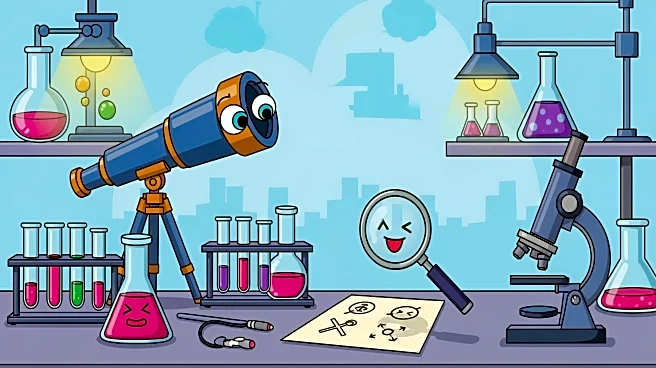What's Happening?
A paper published on the arXiv preprint server in 2018 has gained attention for its candid approach to scientific claims. Researchers Joseph Redmon and Ali Farhadi presented their work on YOLOv3, an AI system designed to recognize objects in images, with
a notably modest tone. The paper, titled 'YOLOv3: An incremental improvement,' openly admits to making only minor design changes and humorously notes the authors' lack of extensive research during the year. The paper includes a section titled 'Things we tried that didn’t work,' which is praised for its honesty and potential to save other researchers time. This approach contrasts with the typical scientific paper that often emphasizes significant advancements and expanded understanding.
Why It's Important?
The paper's approach challenges the conventional norms in scientific publishing, where researchers are often incentivized to amplify the impact of their work. By adopting a more honest and humorous tone, the authors highlight the importance of transparency in research. This could encourage other scientists to adopt similar practices, potentially leading to more realistic expectations and assessments of scientific progress. The paper's candidness also serves as a reminder of the value of acknowledging failures and limitations, which can be crucial for advancing knowledge and improving methodologies.
What's Next?
The humorous and honest approach of the YOLOv3 paper may inspire other researchers to reconsider how they present their findings. This could lead to a shift in academic culture, where transparency and honesty are more highly valued. Additionally, the inclusion of sections detailing unsuccessful attempts could become a standard practice, helping to prevent redundant efforts and fostering a more collaborative scientific environment. As the paper continues to gain attention, it may spark discussions on the ethics of scientific publishing and the pressures faced by researchers to produce groundbreaking results.
Beyond the Headlines
The paper's approach raises questions about the broader implications of scientific publishing practices. It challenges the notion that all research must be groundbreaking to be valuable, suggesting that incremental improvements and honest reporting are equally important. This could lead to a reevaluation of how scientific contributions are measured and rewarded, potentially influencing funding decisions and publication standards. The paper also highlights the role of humor in academia, which can serve as a tool for engaging audiences and promoting critical thinking.















